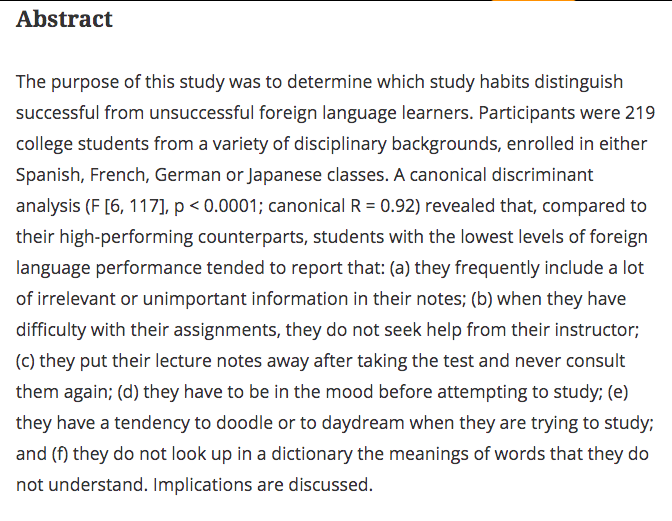Habit and Patterns versus Discipline.
Stoics Had An Idea: Discipline
Marcus Aurelius and the movement of Stoicism emphasized Discipline. However, discipline is like stamina. It runs out when applied constantly.
Patterns live longer than Forces
The solution is Habit.
Patterns Live Longer than Forces.
A man who had gone through the front windshield of a car and cracked his skull on the open pavement once told me, years after the fact, “Nothing by force.”
Nothing By Force
Typically, people try to learn by doing something all at once for many hours and hoping they made a deep enough imprint for it to last a lifetime.
The Analogy of the Stone and Drops of Water
The Analogy of the Stone and Drops of Water were conveyed by a Tibetan Lama:
Consider you have a large rock where you want to bore a hole through to the other side.
If water were to drip one drop at a time onto this stone, after a long and determined while the hole would be bored through the rock.
If, on the other hand, we decide to become clever, and calculate exactly how many drops it takes to bore a hole, we can fill a gigantic vessel with the right amount of water and pour it all on the rock at once.
The effect is what ? The rock is shiny, it looks resplendent in the sun, there’s a cool sensation for a little while, but the glimmery rock dries off and there’s no hole bored through.
Only with the determination of a chain of droplets does a hole get bored through the rock.
The analogy of the rock, as conveyed by a Tibetan Lama
Discipline, though limited, can help establish habits.
Establishment of Proper Habits must be Paramount
Habit will push through even when discipline is lacking. Habit is nurtured gradually and with a positive mindset it’s powerful when even small successes are rejoiced in. Making any open-minded habit stick effectively takes a positive attitude, which helps in the creation of a positive association for the process and the goal.
Now that we can see that habits are far more essential to our long-term success than any one-off action, let’s look at the important major habits of successful language learners.
Habits Specific to Successful Language Learners
Voracious Appetite for Knowledge. “I’m hungry for knowledge” Roger said with a broad smile on his face. He was a neighbor, with a house on the lot just behind ours. A stray chicken came in one afternoon to our backyard. In this city you could raise your own chickens, and sometimes they’d get out. We wondered if it was from the house behind ours. I went for a walk and made friends with the neighbors. Roger was a high school student in the inner city, he wanted to take the GRE so he could continue his life in all the right ways. I offered to help him prepare for the exam. We spent a whole Saturday, four hours nonstop, going over a practice exam. We only went over 3 or 4 long-style questions that had many subquestions. Overall, we spent about 4 hours on 16 questions and I could see the exhaustion and fatigue in his body, but his mind was relentless. He really wanted to pass this exam, and meetings with a tutor were rare, so we made the most of it. I remember discussing what we were most hungry for in life, and Roger’s answer with a huge smile was, “I’m hungry for knowledge.”
Not easily discouraged, Happy to make progress however small. One part of conditioning yourself to succeed is paying more attention to your successes than your failures, in an emotional perspective. Your successes should help you thrive and your mistakes should become more manure for the next harvest. If you couldn’t grow wheat, you need more fertilizer. It’s that simple. Don’t flounder. The rich person’s mindset simply comes with more choices and less beat-yourself-up-in-times-of-failure. It’s not that wealthy people are necessarily smarter or cooler, they simply don’t fear losing one chip when they have a thousand. If you feel like you always have one chip and you just lost it, you’ll keep your spirit low and your absorption low. If you can rejoice in a success, however small, you will raise your spirit and raise your absorption.
Strong willingness to reach out and help new learners. The most successful people in any domain are often the ones helping others succeed. Just look at any entrepreneur who is successful and count how many people around them are also successful. It’s no coincidence, a successful leader, explorer, teacher, and learner reaches out to help those around him or her succeed.
Strong willingness to try and reduce complex concepts to simple information for new learners. Feynman said try and teach what you just figured out to a child, and that’s a great way to try and learn something well and intuitively. Crafting and creating language around a subtle concept is a challenge in itself, and those who are relentless find great treasure and wealth in forming the perfect words for the thought at hand. Break it down so a new learner can understand, and you are probably doing pretty well when it comes to understanding the topic.
Great at establishing small personal rewards for success in process and flow. I’ve heard of people putting gummy bears after each paragraph in a textbook to reward themselves for reading and reaching a new point. It’s a genius little reward system. Take a normal thing that you would normally just devour, like a pack of gummy bears, and turn it into a reward process for reading the textbook. Got another creative idea? Leave it in the comments please!
Able to identify positive flow loops and able to reinforce them. When you find a technique that works, even if it feels boring, stick with it. If you’re making gains in muscle with a boring routine, stick with it. It might feel boring, but if your measured progress is increasing, stick with it. Try to figure out what’s working, and even if you cannot pin it down, stick with it. One working technique is worth more than an infinitely tall pile of techniques that don’t work.
Creatively tailors approaches based on highest priority items. For example, you may notice your pronunciation is not connecting even though you know all the words. You reschedule your lessons around videos and audio that you repeat and sing to yourself to get the pitch down perfectly.
Whiff of the Goal and the Right Attitude
Having a taste or even a whiff of what the goal smells like is nice and can keep you going. Remember how great things will be when you’re fluent, when you have a great understanding, when you can incorporate yourself into the flux and flow of a whole new culture. “How good it would be to benefit others, how good it would be to master communication” these are thoughts that can help align our values with our goals, and help align our actions with our values. Even thinking a thought like one of these for thirty seconds with a smile has immense benefit, because we’re crafting the right attitude to get the job done.
Research Findings
Although the amount of research on successful language learning habits is rare, study habits research has some great info.

A book on Lifelong Learning.
“Resilience, Resourcefulness, Reflectiveness”
“Learning Power,” we hypothesize, can be increased by Improving Habits.

Conclusions: Space your study periods;
Have good diet, exercise, and therefore Rest;
Be Amped to Study. You can Shine Up your Attitude!

Clearly, asking for guidance when you don’t know things,
Looking over things you’ve missed or gotten wrong (doing review),
Making a habit of looking back at your notes in the down-time and off-time,
And psyching yourself up to study every day a little bit,
All of these lead to success. Not doing them leads to the opposite.


3 thoughts on “Habits of Successful Language Learners”